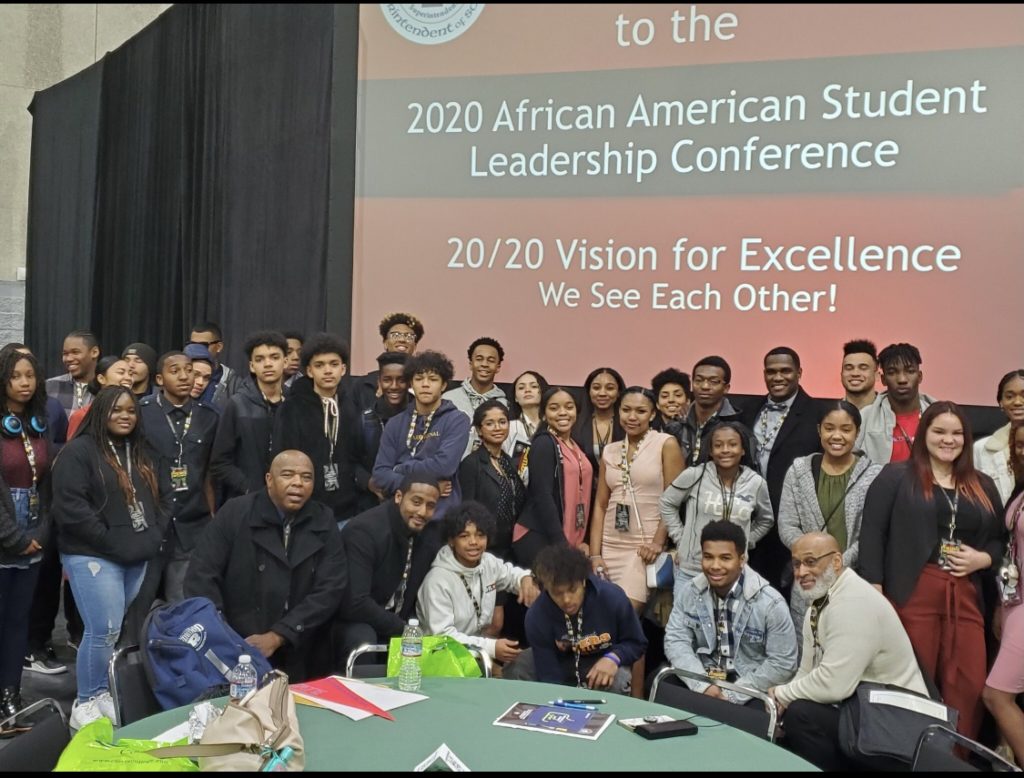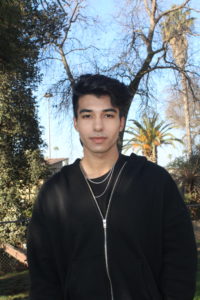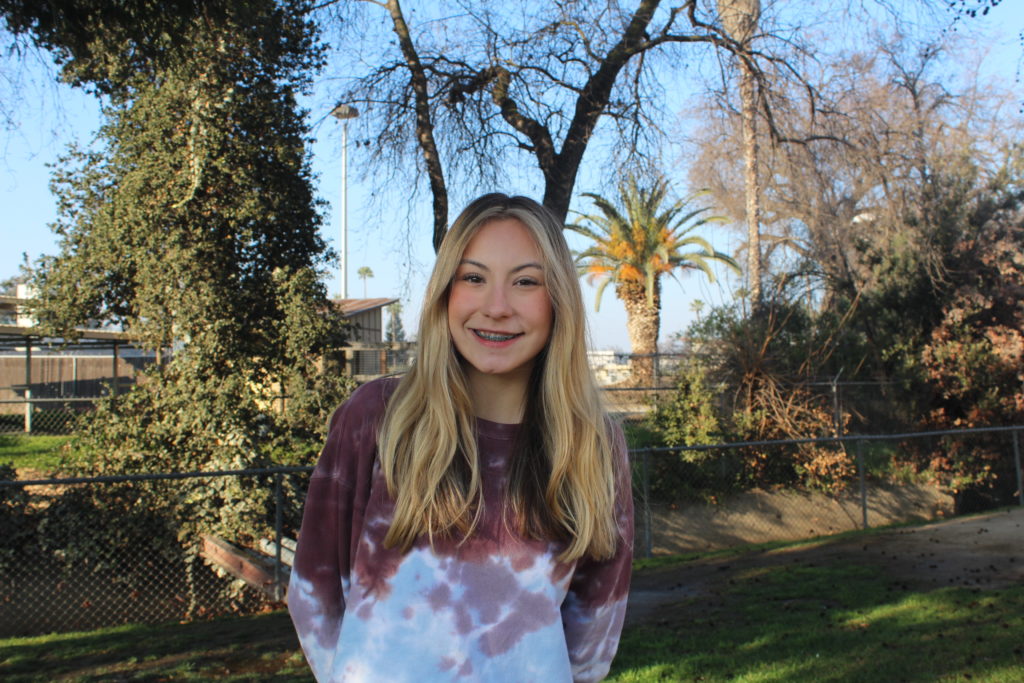By Jasmine Luna
This month as a tribute for celebrating Black history and uplifting local African Americans, Redwood High School Ethnic Studies teacher, Mr. Huerta, plans to bring in one of Redwood’s campus supervisors, Mr. Brian Austin on Wednesday February 16, 2022 as a guest speaker to speak of local Black athletes as a way to uplift local Bipoc communities and their stories.
During the school day and in each period of the Ethnic Studies classes, Austin will present about local Black success, as well as speaking on Black history and unity.
Austin will be highlighting local African American and Black athletes in the Central Valley as a way to share stories and experiences of those athletes who have made it to the NFL [National Football League], NBA [National Basketball Association], and MLB [Major League Baseball].
Black History Month officially became a holiday in 1976 when President Gerald Ford recognized African Americans and Black accomplishments were not being recognized in a speech that was delivered at the historical speech to mark the United States Bicentennial in 1976.
President Ford wanted to draw more attention towards, “the too-often neglected accomplishments of Black Americans in every area of endeavor throughout our history.” Hence, making Black history an official celebrated month in the United States. Since then, Black History Month has been a celebrated month from February 1 through March 1.
During Black History Month, most individuals support and show appreciation to local Bipoc communities by supporting local Black owned business as well as in celebrating black pride and culture by learning more about African Americans and Black Americans.
When hearing about the Black Lives Matter Movement [BLM], most people may think of Breonna Taylor and George Floyd- two black individuals among the many in the United States who faced police brutality and lost their lives.
More recently, the few first Black Lives Matter protests took in Minneapolis May 26, 2020 motivated by Geroge Floyd’s death on May 25, 2020 after police officer Derek Chauvin in Minneapolis suspected that he was using a counterfeit 20 dollar bill.
The occurrences of many Black injustices mostly caused by police violence were what motivated many individuals over the past two years to hold Black Lives Matter protests to bring justice and remembrance to innocent Black lives who have been lost.
Since most Black history is usually not taught in curriculum or in most textbooks, it is important to dedicate this month to stand in solidarity with Black Lives with celebrating Black excellence by listening to Black voices and uplifting both past and present historical figures who are Bipoc [Black Indigenous People of Color] to share their stories.
Austin was a great example of celebrating Black history by sharing his story to students as well as in passing on the local history on successful Black athletes in Tulare County as well as in Kings County.
Austin was born and raised in Hanford, California and has worked for the Visalia Unified School District and Redwood High School for three years.

Photo courtesy of Austin
During his time in Visalia, Austin has spent his free time attending local African American Leadership Summits, as well as working with the NAACP in Hanford, California, in addition with local police stations in order to meet and speak with them on several racial issues specifically with a goal that they will do their jobs without racial profiling or other causes that target African Americans.
Austin points out, “Right now, our country is in bad shape; we look bad as far as race, unity, support as far as multiple things. So, when I decided to take on this project, I wanted to make it clear that I am here to represent all kinds of all races and all cultures.”
“There’s a lot of local successful Black athletes in the Black communities that not a lot of people are talking about or a lot of people don’t even know about it.”
Brian Austin
Austin points out, “Growing up, there wasn’t a real good communication between Hanford and Redwood with Visalia.”
In regards to how Austin feels when speaking of Black history with Ethnic Studies classes, he says, “I think it’s appropriate because since I’ve been here in the valley, I’ve seen Hanford and Visalia change a lot and I’ve also been involved in several African American Leadership conferences such as the one that just took place the week of February first.”
As of the interview with Austin on February 7 at 10:20am, he says an important slogan he would like to focus on while presenting to students would be, “Communication and collaboration for unity.”
He furthers, “Awareness and bringing people together in a positive way because we can ask to want to be equal when we are being treated differently, yet when we have Black History Month, we exclude everyone else. But it’s all history- it’s all American history.”
“We should really take away the stigma off of Black History Month and put it as American history with African Americans so that we could uncover history truthfully.”
Brian Austin

Photo courtesy of author
Redwood’s Ethnic Studies teacher, Mr. Huerta, mentions that though the school rules for having guest speakers are very limited, he feels, “Very happy though that [he] can at least have Mr. Austin come because it was very important to [Austin], and it’s also very important to [Huerta].”
Huerta believes it is very important and crucial that people are hearing local Bipoc speakers. He says, “I just think they need to hear it from people who are part of our community who may know more about this topic than me, and I don’t mind sharing their knowledge. What matters most to me is just that my students will learn the most they can about local Black history.”
“Sometimes we may think that what we are learning in Ethnic Studies is new history maybe, but really it’s not. [Bipoc] have been here a long time and I think people just don’t realize that, and so I’m really looking forward to this insight about the history [Austin] will be sharing.”
Redwood’s Ethnic Studies teacher, Mr. Huerta
A couple of students who are currently taking the Ethnic Studies class at Redwood shared their perspectives about having their first guest speaker in the class:
Q. Why is it important to learn about Black history, and what stands out in Ethnic Studies?

Photo courtesy of author
“I think it’s important to learn about Black history because I feel that history really washes away what really happened… I think a lot more went down than what most people talk about, I feel that we should actually learn what actually happened instead of learning watered down history in typical history classes.”
Erica Araujo, ’22

Photo courtesy of author
“I feel like Black history has been overlooked a lot and I’m glad that now it’s getting the perspective and the attention that it needs.”
Chase Jasso, ’22
“Taking [Ethnic Studies] just made me more aware of what [African Americans] have been through.”
Jasso continued
“Learning about Black history is important because knowing not only about our cultures, but other cultures in general to further my knowledge about everything historically is important. Not only for me, but for our local communities and further generations to learn what actually went down.”
David Romo, ’23
Q. How does it feel to have someone who is a part of the Bipoc community guest speak about local Black history?

Photo courtesy of author
“I really appreciate it because no matter how much you connect to being a minority, you’ll never be like that specific minority, so if it’s Hispanic History Month, and for example an Asian American is talking about it, they’ll never have that real connection, so same tuning applies to Black History Month. When you’re not a part of the Black community, you don’t really have that POV, so it’s really valuable to hear it from somebody who is Black and be able to talk about what they feel instead of somebody else talking for them.”
Jaki Ramirez, ’22
Q. How do you think having a guest speaker will go?

Photo courtesy of author
“I think the guest speaker is going to be really good because if Mr. Huerta is bringing him in, then it’ll be good because he’s always a good speaker in our class generally. So, I think it’s going to be good for all of us to hear a new voice and a new perspective.”
Mikayla Duran, ’24
“I think it’s going to go good because we all have similar perspectives and I think that having someone come in who has more knowledge on different topics, especially relating to the topic of local Black history, is going to be very relevant and important to hear.”
David Romo, ’23
Jasmine Luna
Jasmine Luna ('22) is a 1st Year Journalism student at Redwood Highschool. She has past journalism/photography experience in the Redwood Yearbook class for 3 years. Jasmine enjoys spending her free-time working as an Intern for the Heal Non-profit here in Visalia as well as in working with Apipact Non-profit a tobacco prevention organization for youth and by youth. She is also currently in Varsity Girls Waterpolo, International Dance, and she currently is a co- president of a club at RHS called Students 4 Climate Action Visalia.
Tags: African American, Black History, ethnic studies, redwood gigantea, redwood high school, redwood journalism, redwood rangers, visalia ca

